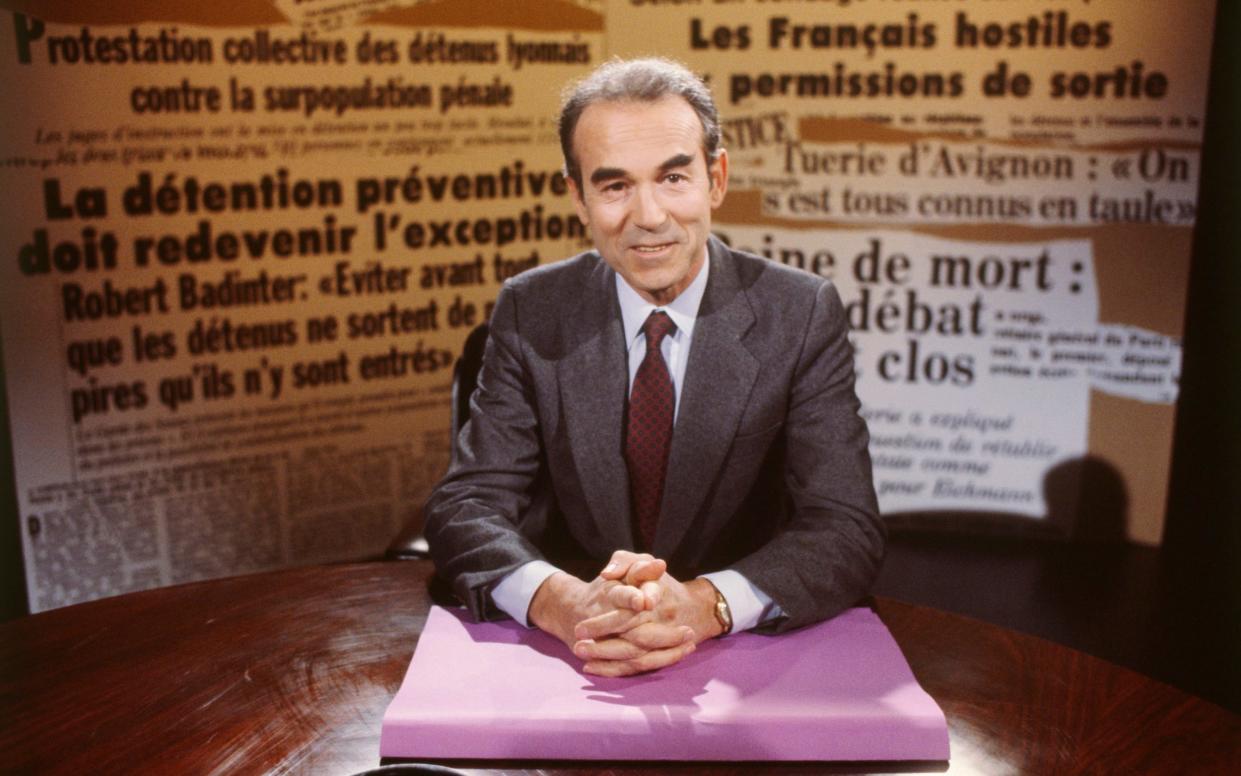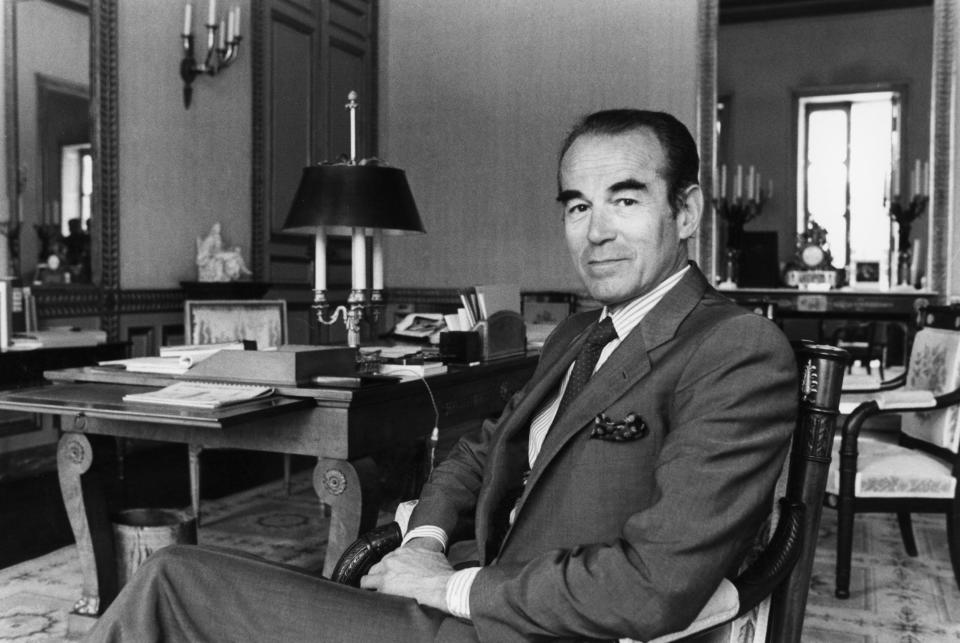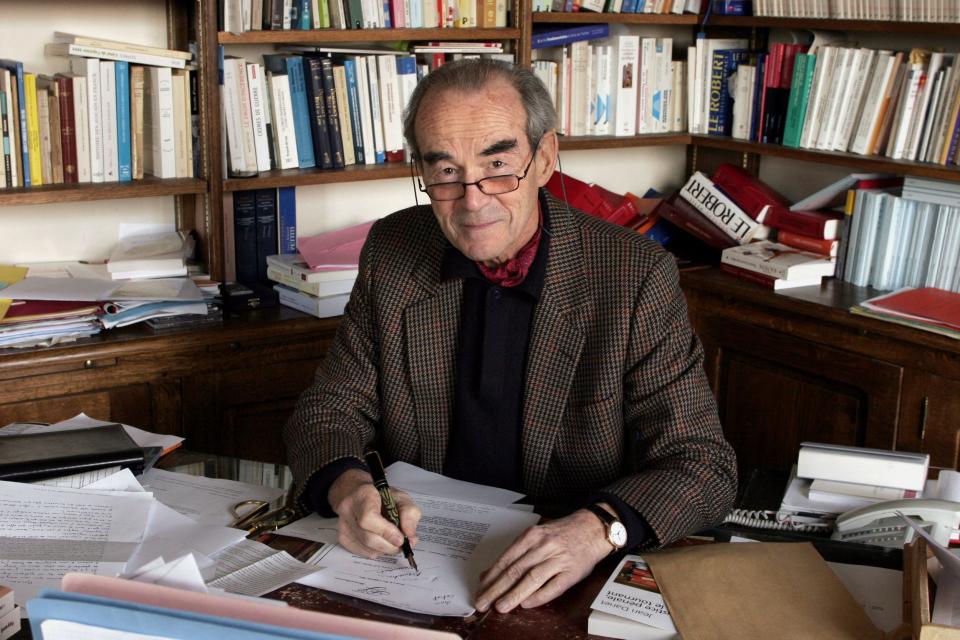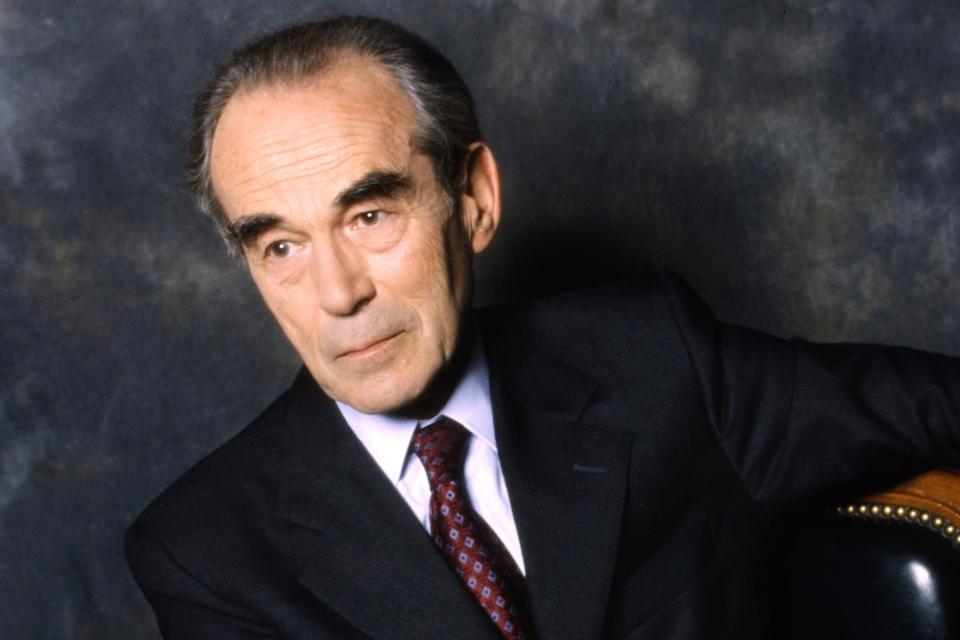Robert Badinter, Holocaust survivor who secured the 1981 abolition of the death penalty in France – obituary

- Oops!Something went wrong.Please try again later.
- Oops!Something went wrong.Please try again later.
Robert Badinter, who has died aged 95, was the Minister of Justice who in 1981 secured the abolition of France’s death penalty – having campaigned for the reform since witnessing a criminal he had defended being guillotined nine years before.
A campaigner for human rights honoured by President Macron as the “moral conscience” of the nation, Badinter was also president of France’s Constitutional Council, a Socialist senator and a professor at the Sorbonne; having lost his father in a Nazi death camp, he pursued a notorious Holocaust denier through the courts.
His prestige was international. Badinter was elected in 1991 to head an EEC commission providing legal advice as Yugoslavia broke up. Five years later he was picked, along with Margaret Thatcher’s favourite “fixer” Lord Wakeham, to mediate between Eurotunnel and its creditors as the company faced bankruptcy.

However, it was for his part in ending the use of the guillotine – widely seen as an instrument of the French Revolution, but first used in 1792 to execute a highwayman – that Badinter will be remembered. His campaign began after the execution on November 28 1972 of Roger Bontems, whose defence he had led. Along with Claude Buffet, Bontems had taken a warder and a nurse hostage during a prison riot. When the police stormed the building, Buffet slit the hostages’ throats.
Badinter was outraged when the jury sentenced both men to death, and after witnessing the executions he dedicated himself to the abolition of the death penalty. In the subsequent trial of the child kidnapper and killer Patrick Henry, he secured a life sentence (with 25 years served) by making the case not about Henry’s guilt but about the legitimacy of the death penalty.
Three people were guillotined in 1976/77 – for crimes involving brutality, torture and sexual violence – under the presidency of Valéry Giscard d’Estaing, but public opinion was turning against the death penalty. The final death sentence, against Philippe Maurice, for killing a police officer, was confirmed by the Court of Cassation in March 1981, weeks before the election of the Socialist president François Mitterrand, a declared abolitionist.
Mitterrand appointed Badinter as Minister of Justice, and one of his first actions was to introduce a Bill to abolish the death penalty for all crimes, civilian and military. Passed by the Senate after heated debate, it became law that October.

Badinter recalled in 2021 that, as the Senate voted, he was in the seat once occupied by Victor Hugo. When the result was announced, he placed his hand on the writer’s commemorative plaque, as if to feel his presence – their shared wish for a “pure, simple and definitive abolition” being finally accomplished. Almost whispering, he concluded: “It was a beautiful morning, the fog had lifted... I left the Sénat, walked through the Jardin du Luxembourg where there were children playing, sat down and looked at them, I felt such a strong and special feeling... the death penalty no longer existed, it was over.”
That walk between the Senate and his immaculate apartment was one Badinter took every day for years – pausing en route to buy a piece of liquorice.
A close associate of Mitterrand, Badinter as Minister of Justice also ended “special courts” such as the State Security Court and the military courts, and secured more rights for the victims of crime. In 1986 Mitterrand appointed him to head the Constitutional Council, provoking a political storm as it gave a presidential confidant charge over the only body that could overrule the Right-wing majority in the National Assembly.
Robert Badinter was born in Paris on March 30 1928 to Simon Badinter and the former Charlotte Rosenberg, Jews from Bessarabia (today Moldova) who had fled seven years before to escape pogroms. When Paris fell to the Germans in 1940 the family sought refuge in Lyon, but in 1943 his father was deported with other Jews to the Sobibor extermination camp in Poland, and put to death soon after.
Badinter read law at the University of Paris, took an MA at Columbia University in New York and completed his studies in 1954 at the Sorbonne. He would be appointed a professor there in 1965, continuing emeritus until 1996.

He began practising as a lawyer in Paris in 1951, and in 1965, with Jean-Denis Bredin, founded the law firm Badinter, Bredin and partners (now Bredin Prat), where he was a partner until appointed Minister of Justice. He was president of the Constitutional Council from 1986 to 1995, when he became a senator for the suburban Hauts-de-Seine département.
In 1991 the EEC set up an arbitration body headed by Badinter to provide the Peace Conference on Yugoslavia with legal advice after two of the country’s six republics – Slovenia and Croatia – declared independence. Made up of presidents of member states’ constitutional courts, the Badinter Commission issued 15 opinions over two years, the most important stating that the Socialist Federal Republic of Yugoslavia had dissolved. This paved the way for international recognition of Slovenia and Croatia as sovereign countries.
The commission also declared the borders between former Yugoslav republics to be national frontiers that could only be changed through diplomacy. Despite this, wars broke out in Croatia, Bosnia-Herzegovina and Kosovo, claiming hundreds of thousands of lives and displacing the largest number of refugees in Europe since the Second World War.
Badinter went on to preside over the Court of Conciliation and Arbitration of the Organisation for Security and Co-operation in Europe (OSCE) following its creation in 1995; he served until 2013. In 1995 he was elected a senator.

In February 1996 a French commercial court appointed Badinter and Wakeham “Mandataires ad Hoc” (Special Commissioners) to try to break the deadlock between Eurotunnel and its 225 bankers over refinancing its £8 billion of debts. The then Anglo-French company had suffered from cost overruns and delays in commissioning the Tunnel, which lost it crucial revenue with interest charges stacking up.
Eurotunnel’s chairman, Sir Alastair Morton, said it recommended Badinter and Wakeham to the court because they were “eminent, and had a strong track record”. He added: “They will simply be trying to create areas of common agreement. They will circulate within the parties in an informal manner.”
The appointment of a mandataire was covered by a French law from 1984 on companies in difficulty, but had never been applied to one the size of Eurotunnel, or to a firm with such problems. A reconstruction under new management bought valuable time, but it would be 2009 before Eurotunnel (today an essentially French concern known as Getlink) paid its first dividend since work began in 1987.
As an elder statesman, the ascetic Badinter spoke freely. In 2009 he voiced dismay at Pope Benedict XVI’s lifting his predecessor’s excommunication of the English priest and Holocaust denier Richard Williamson, who had been illegally consecrated a bishop by the dissident archbishop Marcel Lefebvre. The pontiff later reactivated the excommunication.

When at the start of 2011 Dominique Strauss-Kahn, managing director of the International Monetary Fund and one of France’s governing set, was accused of rape and arrested by the New York City police, Badinter declared himself outraged by this “media killing”.
Badinter was the author of numerous books, including L’exécution (1973), about the trial of Claude Buffet and Roger Bontems, and others about the death penalty; Condorcet, 1743–1794 (1988), written with his wife Élisabeth; Free and Equal: the emancipation of the Jews 1789–1791 (1989); and The Thorns and the Roses (2011), on his failures and successes as Minister of Justice.
He refused the Légion d’honneur, as did his wife, but accepted foreign decorations, mainly from the Czech Republic and several Balkan countries.
Robert Badinter was married to the philosopher and feminist Élisabeth Bleustein-Blanchet, daughter of the founder of the multinational advertising company Publicis, Marcel Bleustein-Blanchet.
Robert Badinter, born March 30 1928, died February 9 2024

